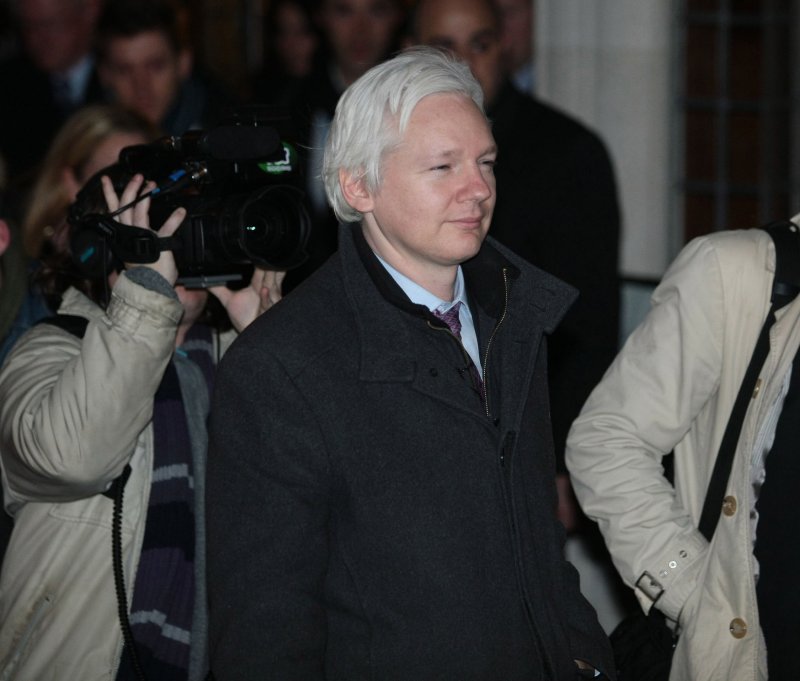Wikileaks founder Julian Assange leaves the Supreme Court on the final day of his hearing to avoid extradition to Sweden in London on February 2, 2012. File Photo by Hugo Philpott/UPI |
License Photo
Oct. 20 (UPI) -- WikiLeaks co-founder Julian Assange, who has been in asylum in Ecuador's British embassy for six years, said he will sue the government for "violating his fundamental rights."
Assange, 47, originally of Australia, who founded the WikiLeaks website that has published published thousands government-classified documents, claims that under Ecuador's President Lenin Moreno, his access to the outside world has been limited and his freedom of speech censored, "violating his fundamental rights."
Assange originally obtained asylum at the embassy under Ecuador's former President Rafael Correa in June 2012 to avoid extradition to Sweden over rape allegations. Although the Swedish investigation has been dropped, Assange fears an arrest for bail breach in the sexual assault case would allow him to be extradited to the United States for publishing the classified documents on WikiLeaks.
Correa said last week the current administration is "trying to break him psychologically," and that U.S. Vice President Mike Pence and Moreno had struck a deal when Pence visited Moreno in June.
WikiLeaks lawyer Baltasar Garzon has launched legal proceedings.
There have been "a number of measures which have a threatening tone" Garzon said in a news conference Friday.
Under new house rules, imposed since he partially regained Internet access last weekend, Assange has to clean his bathroom, take better care of his cat and obtain approval for visitors for diplomatic staff three days in advance or risk losing asylum and his cat, the Guardian reported.
The 10-page protocol makes an exception to the restriction on visits without three days notice for medical assistance, Codrigo Vidrio reported.
Assange regained access to embassy WiFi for his personal computer and phone, but must refrain from political activity online and his guests are prohibited from installing "unauthorized equipment." The Ecuadorian government had suspended Assange's Internet access in March after his tweets accused Britain and the United States of "poor diplomacy," regarding the expulsion of Russian diplomats. Ecuador's embassy said the tweets violated an agreement that he should refrain from "messages that supposed an interference in relation to other states," and hurt the country's international relations.
"The protocol makes Assange's political asylum contingent on censoring his freedom of opinion, speech and association," a WikiLeaks statement said. "The protocol also requires journalists, his lawyers and anyone else seeking to see Julian Assange to disclose private or political details such as their social media usernames, the serial numbers and IMEI codes of their phones and tablets with Ecuador--which the Protocol says the government may "share with other agencies."
WikiLeaks grabbed worldwide attention in April 2010 when it released footage of U.S. soldiers fatally shooting at least 18 civilians from a helicopter in Iraq. In 2016, WikiLeaks also released nearly 20,000 leaked emails from Democratic National Committee staffers. The organization says it's exposing war crimes and abuses, but critics say it's risking national security and violating privacy.
Assange gained citizenship in Ecuador late last year.















